"There is no wealth like knowledge, and no poverty like ignorance".

How to Turn Your Website into a Traffic Magnet
Do you ever feel like your website is the internet's best-kept secret? You've got killer content, fantastic products, and a sleek design, but where is everyone? If you're nodding along, it's time to sprinkle some SEO magic on your site. Grab a coffee, and let’s dive into the enchanting world of Search Engine Optimisation (SEO) – where algorithms meet artistry, and your website becomes a traffic magnet.
What is SEO and Why Should You Care?
Imagine SEO as a party planner. You’re throwing the best bash in town (your website), but if no one knows about it, the dance floor will be empty. SEO is the art of making sure your invitations (web pages) reach the right people (your audience) at the right time (when they search for you). It’s all about making your website irresistible to search engines like Google, so they can’t help but send visitors your way.
The Basics: Getting Started with SEO
1. Keywords: The Secret Sauce
Think of keywords as the secret ingredient in your grandma’s famous cookies. They’re the phrases people type into search engines when they’re looking for something. Sprinkle these magic words throughout your content, but don’t overdo it – nobody likes keyword stuffing, not even Google.
Example: If you’re a bakery, your keywords might include "best cupcakes in [your city]" or "gluten-free cookies."
2. Quality Content: The Life of the Party
Search engines love fresh, high-quality content. It’s like a popular DJ that keeps the crowd (visitors) coming back for more. Write engaging blog posts, create informative videos, and share interesting infographics. Your content should be so good that people can’t help but share it – and when they do, search engines take notice.
Tip: Keep it relevant and valuable. Solve your audience’s problems or answer their questions, and you’ll become their go-to source.
3. On-Page SEO: Sprucing Up the Venue
On-page SEO is all about optimizing individual pages on your site. This includes things like meta titles, descriptions, and headers – think of them as the decorations that make your venue (website) look fabulous.
Meta Titles: These are like headlines that tell search engines what your page is about.
Meta Descriptions: A sneak peek of what’s inside, attracting people to click.
Headers (H1, H2, H3): These organize your content and make it easy to read.
4. Mobile Optimisation: The VIP Experience
More people are browsing on their phones than ever before. If your website isn’t mobile-friendly, you’re essentially turning away VIP guests. Make sure your site looks and works great on all devices.
Fun Fact: Google uses mobile-first indexing, meaning it primarily looks at the mobile version of your site when determining rankings.
5. Site Speed: No One Likes a Slowpoke
Your site speed is like the party’s bouncer. If your website is slow, visitors (and search engines) will get impatient and leave. Optimise your images, use caching, and choose a good hosting provider to keep things moving quickly.
Tip: Aim for a load time under three seconds. There are plenty of tools like Google Page Speed Insights to help you test and improve your speed.
Advanced SEO: Taking It to the Next Level
1. Backlinks: The Social Proof
Backlinks are like word-of-mouth referrals. When other reputable websites link to yours, it tells search engines that you’re trustworthy and popular. Focus on building quality backlinks through guest posts, collaborations, and by creating content people naturally want to link to.
2. Local SEO: Being the Neighbourhood Favourite
If you have a local business, local SEO is your best friend. Optimise your website for local searches by including your city and region in your keywords, claiming your Google My Business listing, and collecting positive customer reviews.
Example: “Best pizza in [your city]” or “Top-rated dentist in [your city]”
3. Analytics: The Feedback Loop
SEO isn’t a set-it-and-forget-it deal. Use tools like Google Analytics to monitor your traffic, see what’s working, and tweak your strategy accordingly. It’s like getting feedback from your party guests so you can make the next event even better.
Conclusion: Embrace the SEO Magic
SEO might seem like a daunting task, but with a bit of effort, you can turn your website into a buzzing hub of activity. Remember, it’s all about making your site appealing to both visitors and search engines. Start with the basics, explore advanced techniques, and most importantly, have fun with it! Your website deserves to be the life of the internet party.
Ready to cast some SEO spells and watch your traffic soar? Visit our website here for more tips, tools, and tricks to become an SEO wizard. Let’s get this party started!

How to Turn Your Website into a Traffic Magnet
Do you ever feel like your website is the internet's best-kept secret? You've got killer content, fantastic products, and a sleek design, but where is everyone? If you're nodding along, it's time to sprinkle some SEO magic on your site. Grab a coffee, and let’s dive into the enchanting world of Search Engine Optimisation (SEO) – where algorithms meet artistry, and your website becomes a traffic magnet.
What is SEO and Why Should You Care?
Imagine SEO as a party planner. You’re throwing the best bash in town (your website), but if no one knows about it, the dance floor will be empty. SEO is the art of making sure your invitations (web pages) reach the right people (your audience) at the right time (when they search for you). It’s all about making your website irresistible to search engines like Google, so they can’t help but send visitors your way.
The Basics: Getting Started with SEO
1. Keywords: The Secret Sauce
Think of keywords as the secret ingredient in your grandma’s famous cookies. They’re the phrases people type into search engines when they’re looking for something. Sprinkle these magic words throughout your content, but don’t overdo it – nobody likes keyword stuffing, not even Google.
Example: If you’re a bakery, your keywords might include "best cupcakes in [your city]" or "gluten-free cookies."
2. Quality Content: The Life of the Party
Search engines love fresh, high-quality content. It’s like a popular DJ that keeps the crowd (visitors) coming back for more. Write engaging blog posts, create informative videos, and share interesting infographics. Your content should be so good that people can’t help but share it – and when they do, search engines take notice.
Tip: Keep it relevant and valuable. Solve your audience’s problems or answer their questions, and you’ll become their go-to source.
3. On-Page SEO: Sprucing Up the Venue
On-page SEO is all about optimizing individual pages on your site. This includes things like meta titles, descriptions, and headers – think of them as the decorations that make your venue (website) look fabulous.
Meta Titles: These are like headlines that tell search engines what your page is about.
Meta Descriptions: A sneak peek of what’s inside, attracting people to click.
Headers (H1, H2, H3): These organize your content and make it easy to read.
4. Mobile Optimisation: The VIP Experience
More people are browsing on their phones than ever before. If your website isn’t mobile-friendly, you’re essentially turning away VIP guests. Make sure your site looks and works great on all devices.
Fun Fact: Google uses mobile-first indexing, meaning it primarily looks at the mobile version of your site when determining rankings.
5. Site Speed: No One Likes a Slowpoke
Your site speed is like the party’s bouncer. If your website is slow, visitors (and search engines) will get impatient and leave. Optimise your images, use caching, and choose a good hosting provider to keep things moving quickly.
Tip: Aim for a load time under three seconds. There are plenty of tools like Google Page Speed Insights to help you test and improve your speed.
Advanced SEO: Taking It to the Next Level
1. Backlinks: The Social Proof
Backlinks are like word-of-mouth referrals. When other reputable websites link to yours, it tells search engines that you’re trustworthy and popular. Focus on building quality backlinks through guest posts, collaborations, and by creating content people naturally want to link to.
2. Local SEO: Being the Neighbourhood Favourite
If you have a local business, local SEO is your best friend. Optimise your website for local searches by including your city and region in your keywords, claiming your Google My Business listing, and collecting positive customer reviews.
Example: “Best pizza in [your city]” or “Top-rated dentist in [your city]”
3. Analytics: The Feedback Loop
SEO isn’t a set-it-and-forget-it deal. Use tools like Google Analytics to monitor your traffic, see what’s working, and tweak your strategy accordingly. It’s like getting feedback from your party guests so you can make the next event even better.
Conclusion: Embrace the SEO Magic
SEO might seem like a daunting task, but with a bit of effort, you can turn your website into a buzzing hub of activity. Remember, it’s all about making your site appealing to both visitors and search engines. Start with the basics, explore advanced techniques, and most importantly, have fun with it! Your website deserves to be the life of the internet party.
Ready to cast some SEO spells and watch your traffic soar? Visit our website here for more tips, tools, and tricks to become an SEO wizard. Let’s get this party started!


© 2024 Nimrod Digital Marketing | T&C | Privacy Policy

